
Via Carlo Emilio Gadda Immoviewer
ABSTRACT. This article examines Carlo Emilio Gadda's translations of two Spanish texts from the Siglo de Oro.In the first section, by situating Gadda's translations in the context of the "rediscovery" of the Baroque in Italy, his work is presented as the result not only of his literary preferences and long acquaintance with Baroque literature, but also as the product of an activity that.

Quer pasticciaccio brutto de Via Merulana by Gadda, Carlo Emilio
Italo Calvino, Pier Paolo Pasolini, and Alberto Moravia all considered That Awful Mess on the Via Merulana to be the great modern Italian novel. Unquestionably, it is a work of universal significance and protean genius: a rich social novel, a comic opera, an act of political resistance, a blazing feat of baroque wordplay, and a haunting story.

Quer pasticciaccio brutto de Via Merulana by Gadda, Carlo Emilio (1957
Carlo Emilio Gadda, Quer pasticciaccio brutto de via Merulana Manuela Bertone p. 261-264 https://doi.org/10.4000/variants.1479 Bibliographical reference Carlo Emilio Gadda, Quer pasticciaccio brutto de via Merulana. Ed. Giorgio Pinotti. Milano: Adelphi, 2018. 370 pp. ISBN: 978-8-84-593306-6. Text | Bibliography | References | About the author
El zafarrancho aquel de vía Merulana GADDA,CARLO EMILIO Comvez Libros
That awful mess on the via Merulana by Gadda, Carlo Emilio, 1893-1973. Publication date 1985 Publisher London : Quartet Collection inlibrary. engita; Italian. Translation of: Quer pasticciaccio brutto de via Merulana Access-restricted-item true Addeddate 2012-04-17 21:15:24 Boxid IA103504 Camera Canon EOS 5D Mark II City London Donor
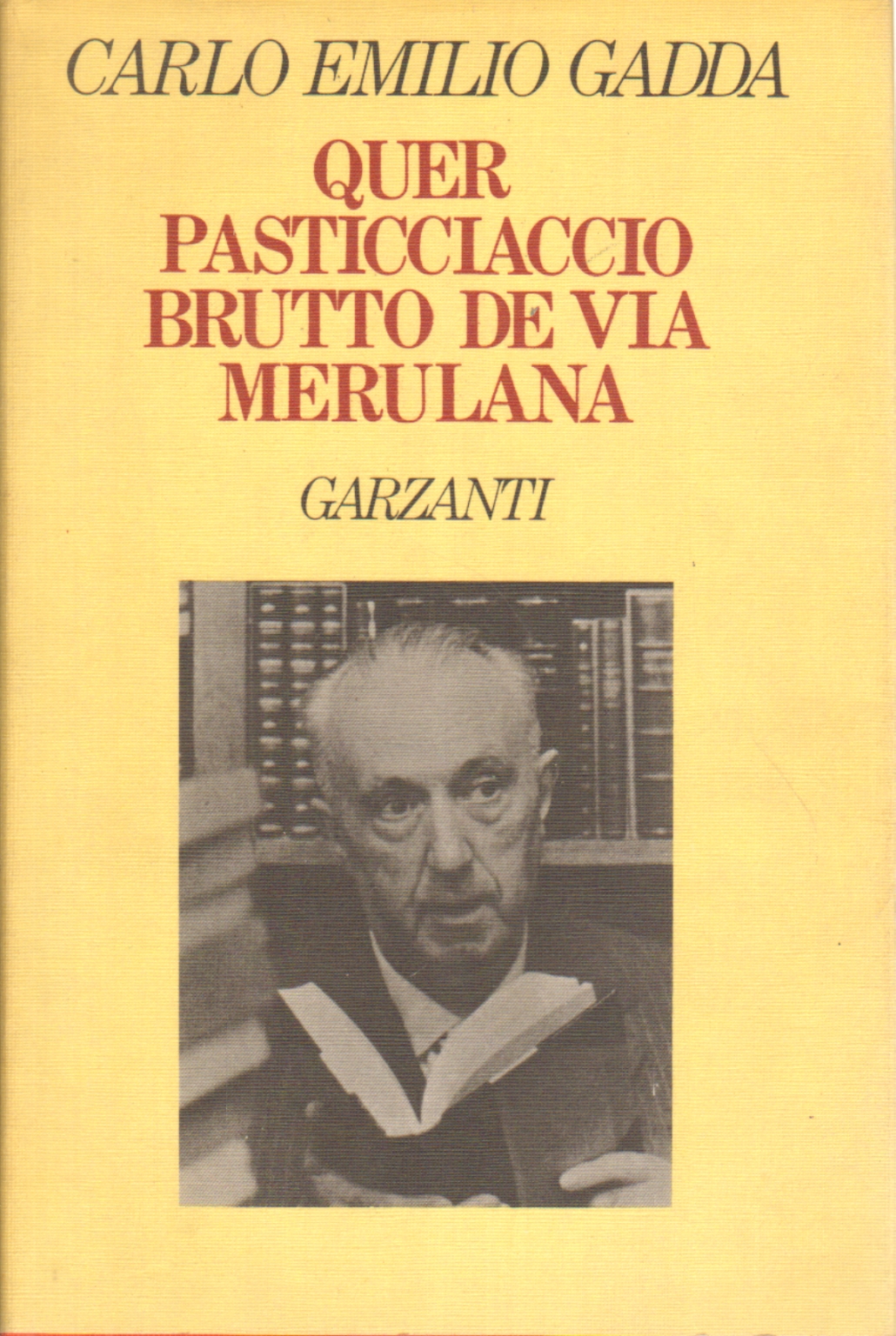
Quel pasticciaccio bruto de Via Merulana Carlo Emilio Gadda
Carlo Emilio Gadda: Quer pasticciaccio brutto de via Merulana (That Awful Mess on Via Merulana) Italian critics have claimed this novel as the Italian modernist novel, their response, if you will, to Joyce, Musil and even Kafka. While that might be something of an exaggeration, the book is certainly a very fine one.
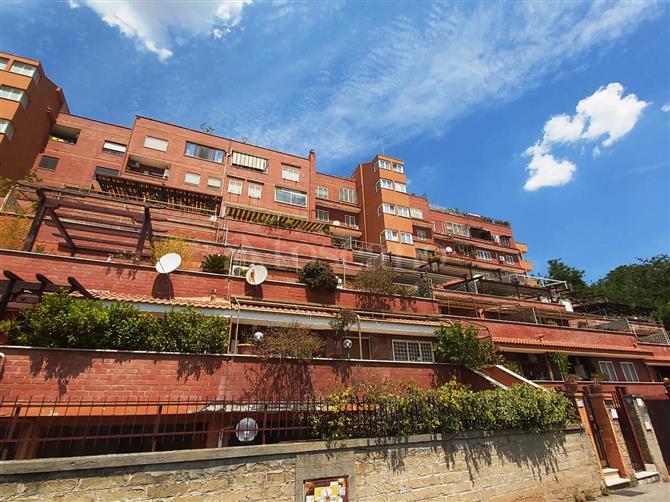
vendita Casa a Roma in Via Carlo Emilio Gadda, Fonte Ostiense 38/2021
Die gräßliche Bescherung in der Via Merulana [1] (Quer pasticciaccio brutto de Via Merulana [2]) ist der Titel eines 1946 in einer Zeitschriftenserie und 1957 in erweiterter Form als Buch publizierten Romans des italienischen Schriftstellers Carlo Emilio Gadda (1893-1973). Inhaltsverzeichnis 1 Handlungsübersicht
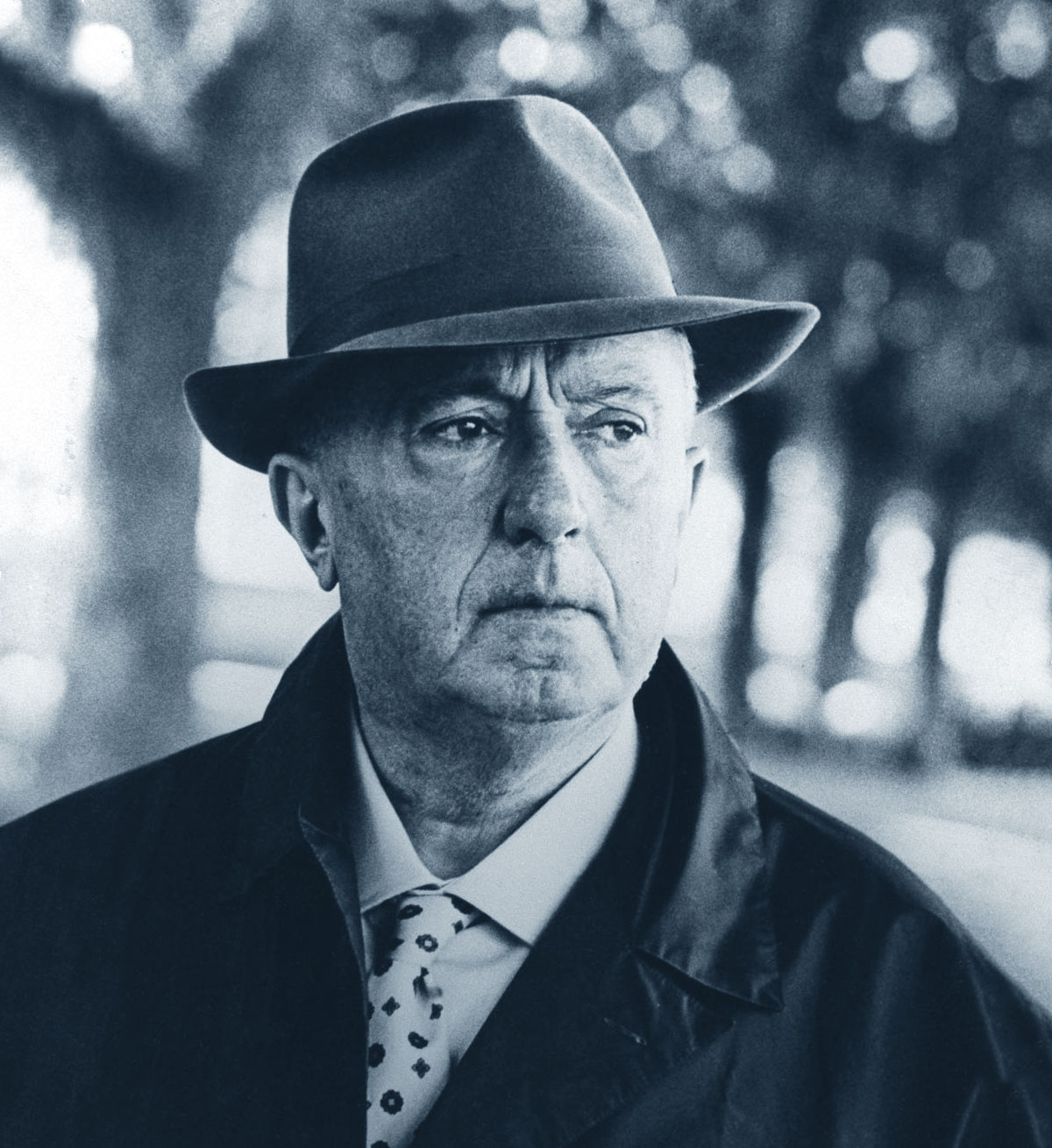
Biografia Carlo Emilio Gadda, vita e storia
In a large apartment house in the center of Rome, two crimes are committed within a matter of days: a burglary, in which a good deal of money and precious jewels are taken, and a murder, as a young woman whose husband is out of town is found with her throat cut.
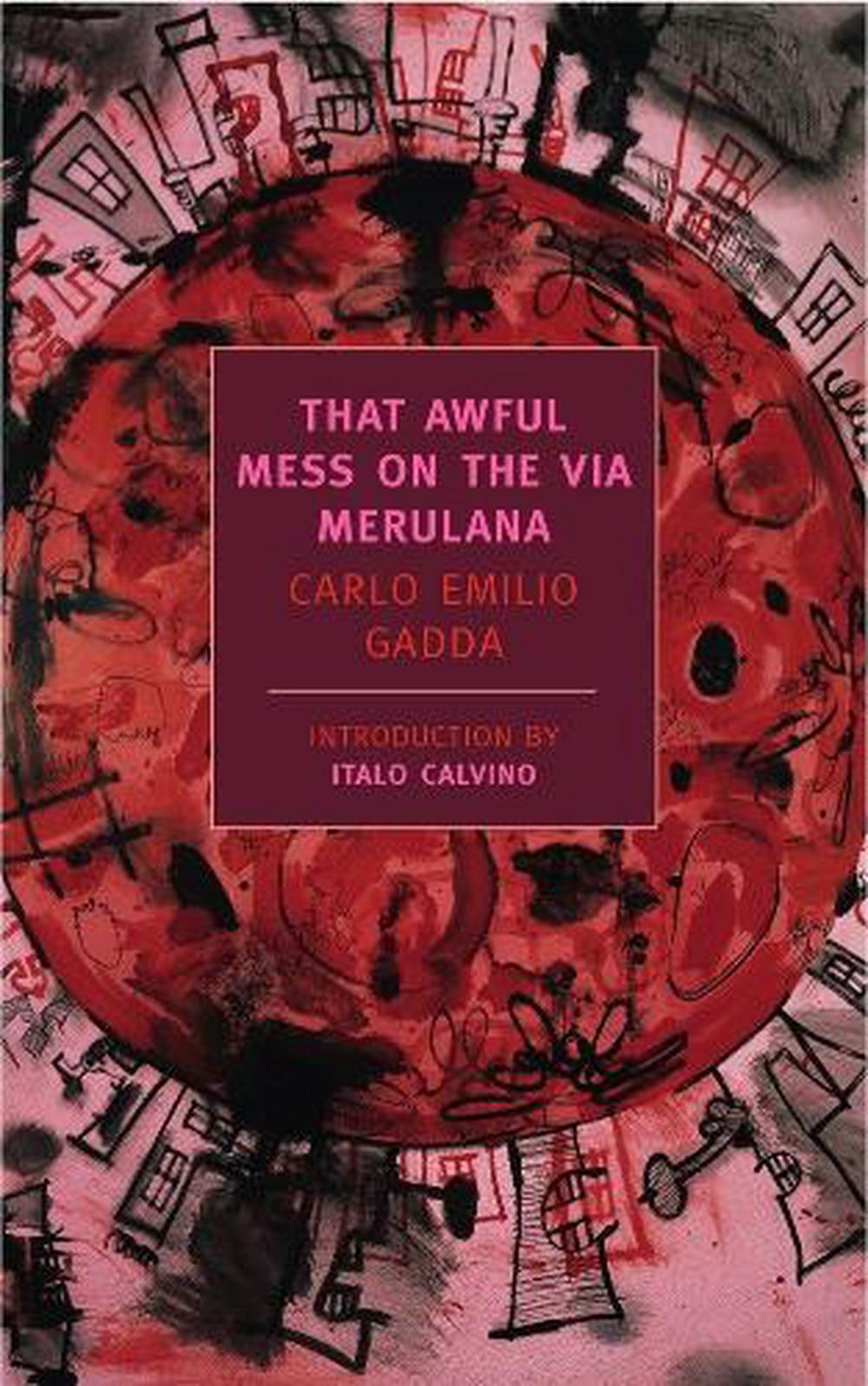
That Awful Mess on the Via Merulana by Carlo Emilio Gadda (English
Carlo Emilio Gadda as Catholic and Man of Science: the case of Quer pasticciaccio brutto de via Merulana Christopher John Ferguson The present study looks at the influence that two of the major cultural forces of the twentieth century had on the output of Carlo Emilio Gadda.
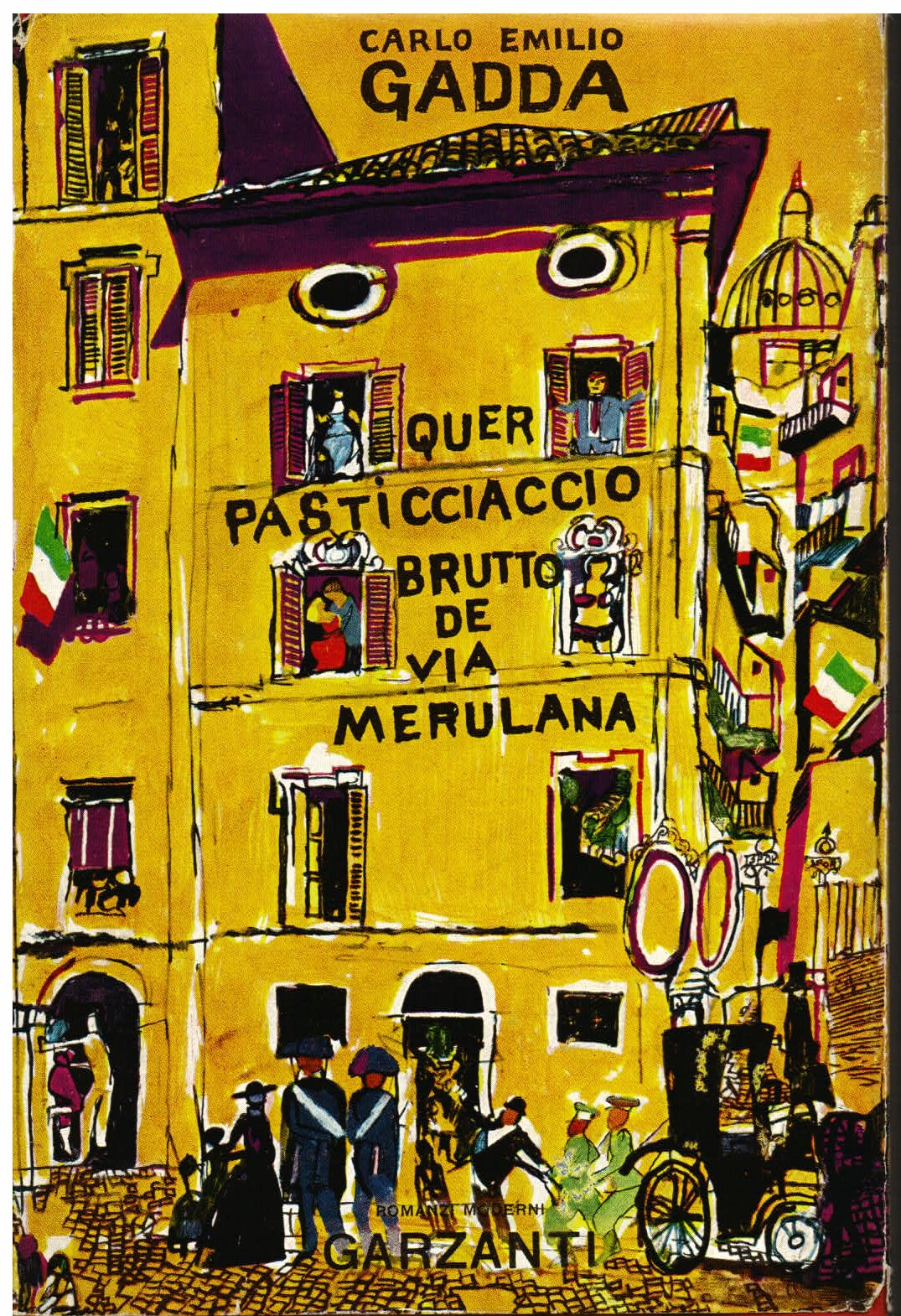
Quer pasticciaccio brutto de via Merulana by Gadda Carlo Emilio (1957
Mappa di Via Carlo Emilio Gadda a Roma © Italiaonline S.p.A. Direzione e coordinamento di Libero Acquisition S.á r.l.P. IVA 03970540963 Version: 1.0.3 Consulta ora la Mappa di Via Carlo Emilio Gadda a Roma su TuttoCittà. Accedi e scopri negozi e attività commerciali online.

El zafarrancho aquel de Via Merulana Carlo Emilio Gadda ePubGratis
That Awful Mess on Via Merulana is an Italian novel by Carlo Emilio Gadda, first published in Italy by Garzanti Editore s.p.a. in 1957. An English translation by William Weaver was published in 1965. In fascist Italy in 1927, Detective Francesco Ingravallo, known to friends as Don Ciccio, is called in to investigate the murder of Liliana.
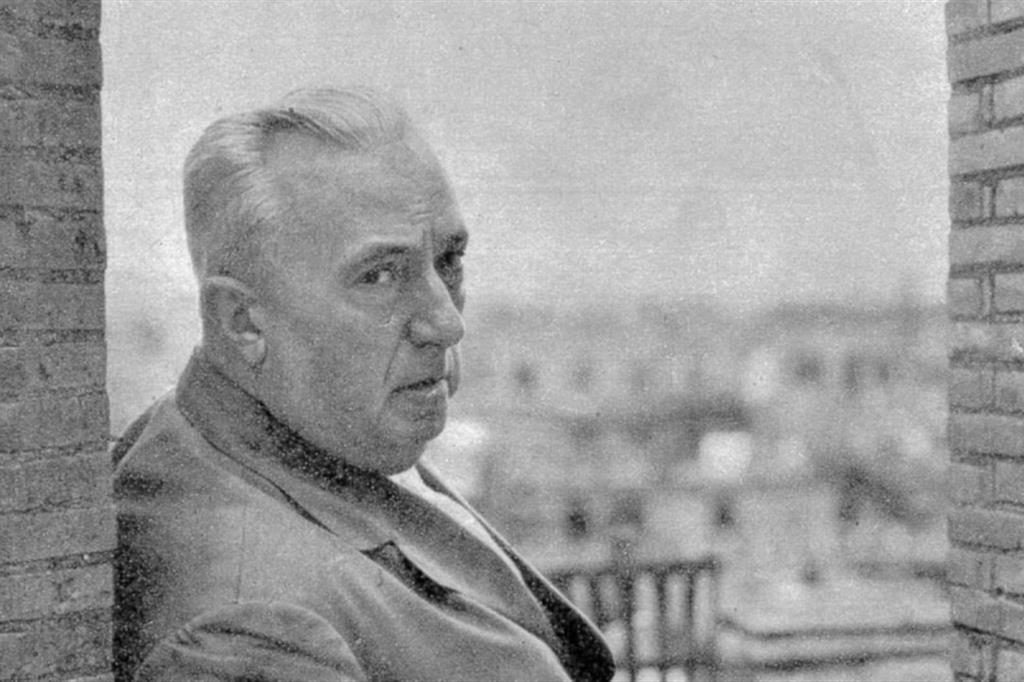
Nell’epistolario tutti i tormenti di Gadda
Carlo Emilio Gadda has chosen to leave the story in a deliberately unfinished form. Cite this page as follows: "That Awful Mess on Via Merulana - Summary" Literary Essentials: World Fiction Ed.

an old man sitting at a table reading a newspaper while holding his
This is certainly the case of an Italian astonishing novel, ' Quer pasticciaccio brutto de via Merulana ' by Carlo Emilio Gadda, first published in 1957 and translated into English in 1965 by William Weaver. The author (1893-1973) was an engineer who had always maintained a certain distance from the literary world, despite his love for.
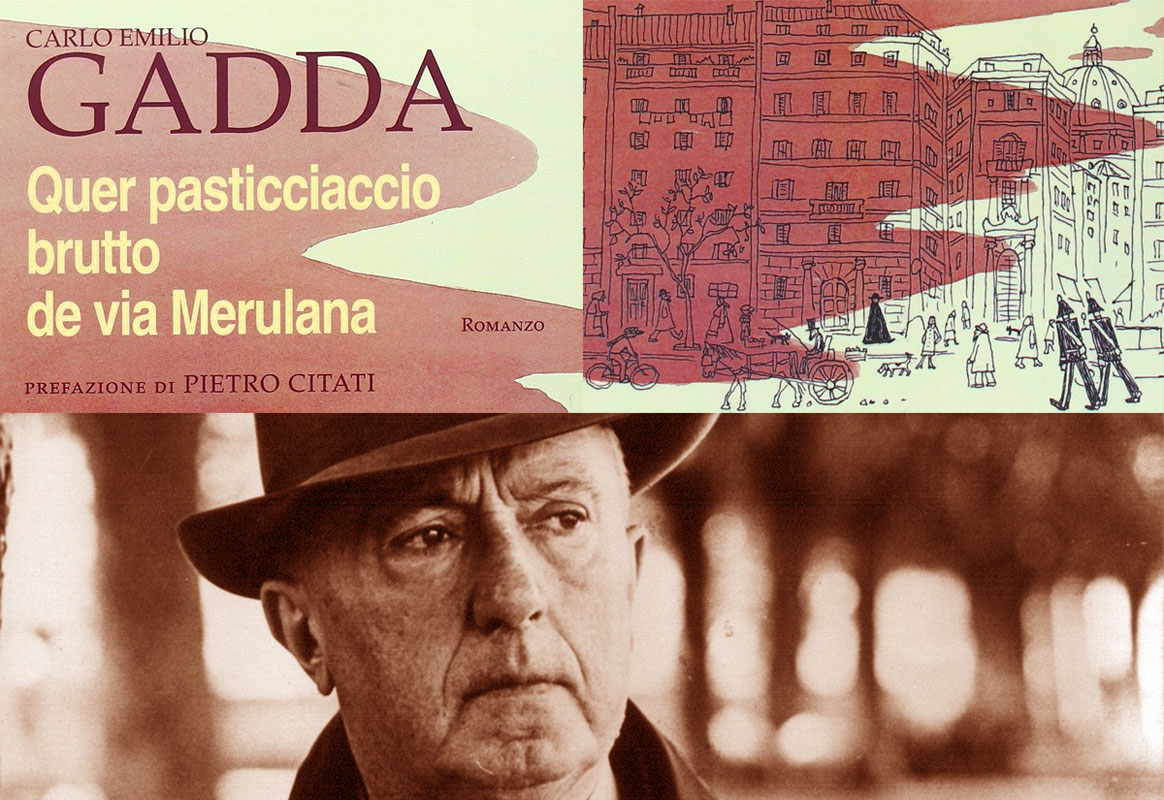
Quer pasticciaccio brutto de via Merulana riassunto, commento e breve
When they reached Via Merulana: the crowd. Outside the entrance, the black of the crowd, with its wreath of bicycle wheels. "Make way there. Police.". Everybody stood aside. The door was closed. A policeman was on guard: with two traffic cops and two carabinieri. The women were questioning them: the cops were saying to the women: "Stand.

Carlo Emilio Gadda il mondo è un groviglio Mangialibri dal 2005 mai
THAT AWFUL MESS ON VIA MERULANA. by Carlo Emilio Gadda ‧ RELEASE DATE: Aug. 30, 1965. The dictum ""Le style c'est l'homme"" to a large extent defines the work of Carlo Emilio Gadda; he has had great recognition in Europe, won the $10,000 International Literary Prize in 1963, and this is his most important book..

"Quer pasticciaccio brutto de via Merulana" di Carlo Emilio Gadda
Carlo Emilio Gadda, (born Nov. 14, 1893, Milan, Italy—died May 21, 1973, Rome), Italian essayist, short-story writer, and novelist outstanding particularly for his original and innovative style, which has been compared with that of James Joyce.. Gadda was educated as an electrical engineer and volunteered in World War I.During the 1920s he worked as an engineer abroad.

A Milano con Carlo Emilio Gadda Laboratorio G. Fantoli Politecnico di
Carlo Emilio Gadda ( Italian pronunciation: [ˈkarlo eˈmiːljo ˈɡadda]; November 14, 1893 - May 21, 1973) was an Italian writer and poet. He belongs to the tradition of the language innovators, writers that played with the somewhat stiff standard pre-war Italian language, and added elements of dialects, technical jargon and wordplay. Biography